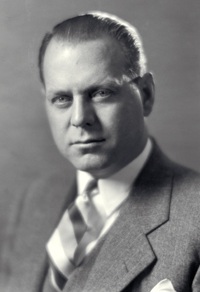A Quote by William J. Mitchell
Automobile is one of the most successful inventions of all time, but in my view, it is thoroughly obsolete already. And so by fundamentally rethinking the automobile, thinking of it as a robot on four wheels, essentially, something that can communicate with other intelligent devices, it can operate in a coordinated way, you can really start to fundamentally rethink urban personal mobility.
Related Quotes
Everybody thinks an automobile needs an engine. Well, an automobile doesn't necessarily need an engine. What we do is shift electric motors into the wheels of our automobiles and so we have a completely different kind of thing where we have four independent intelligent wheels rather than a traditional internal combustion engine and power train and so on.
You'll be riding along in an automobile. You'll be the driver perhaps. You're a Christian. There'll be several people in the automobile with you, maybe someone who is not a Christian. When the trumpet sounds you and the other born-again believers in that automobile will be instantly caught away - you will disappear, leaving behind only your clothes and physical things that cannot inherit eternal life. That unsaved person or persons in the automobile will suddenly be startled to find the car suddenly somewhere crashes.
In every phase of the automotive industry, certain factors have been more important than all others in relation to the way the automobile has looked. Phase One is really the Ford story. Function and production were the most important considerations. The automobile was an invention, and it looked like one.
The automobile, practical since 1906, was proceeding to disintegrate and stamp anew the pattern of communication, manners, and city life in the United States, by 1918; before long, men would begin to see that the automobile, and the mass production techniques which made its possible, could alter the national character and morality more thoroughly than could the most absolute of tyrants. As a mechanical Jacobin, it rivaled the dynamo. The productive process which made these vehicles cheap was still more subversive of the old ways than was the gasoline engine itself.
It used to be that if your automobile broke, the teenager down the street with the wrench could fix it. Now you have to have sophisticated equipment that can deal with microchips. We're entering a world in which the complexity of the devices and the system of interconnecting devices is beyond our capability to easily understand.
When you buy a used car, you kick the tires, you look at the odometer, you open up the hood. If you do not feel yourself an expert in automobile engines, you bring a friend who is. And you do this with something as unimportant as an automobile. But on the issues of the transcendent, of ethics, of morals, of the origins of the world, of the nature of human beings, on those issues should we not insist upon at least equally skeptical scrutiny?
There is a profound injustice at the heart of the American economy. You look at the media and realize that these corporate-run commercial entities are failing to give Americans the information they need to make informed choices. You look at the food we're eating and the obesity epidemic and realize there is something fundamentally wrong about our nutritional habits. So across the board there is something fundamentally unjust about every aspect of our personal lives.







































